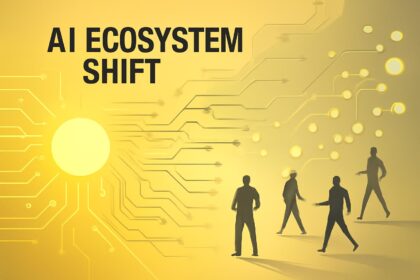Toyota Commits $1.5 Billion to Startup Ecosystem
Japanese automotive giant Toyota has unveiled a $1.5 billion capital commitment aimed at fostering innovation across the startup ecosystem. This strategic move is designed to support ventures from early invention stages through to mature company growth, reinforcing Toyota’s position at the forefront of mobility technology development. The investment initiative is structured through two primary vehicles: Toyota Invention Partners Co., a newly formed subsidiary with approximately $670 million in capital, and Woven Capital, Toyota’s growth-stage venture arm, which has launched a second fund totaling $800 million. George Kellerman, general partner at Woven Capital, described Toyota Invention Partners as a complementary bookend to the company’s broader investment strategy, enabling comprehensive support across the startup lifecycle.
Electric Vehicle Sales Surge Ahead of Federal Tax Credit Expiry
The electric vehicle (EV) market experienced a notable surge as the $7,500 federal tax credit expired on September 30. Automakers including Tesla, Ford, General Motors, and Hyundai reported record quarterly EV sales, driven by consumer urgency to capitalize on the incentive before its conclusion. Tesla delivered a record 497,099 vehicles in the third quarter, marking a 29% increase over the prior quarter and a 7% year-over-year rise. Rivian also showed growth, with deliveries climbing to 13,201 units. Industry observers remain cautious about the post-tax credit period, with some companies, including Rivian, already revising their 2025 sales forecasts downward amid concerns of a potential slowdown.
Department of Energy Cancels $7.56 Billion in Clean Energy Grants
In a significant setback for clean energy initiatives, the U.S. Department of Energy (DOE) terminated 321 projects worth a combined $7.56 billion. The cancellations disproportionately affected states that predominantly supported Vice President Kamala Harris in the last presidential election, including California, Colorado, Illinois, and New York. Among the largest cuts was a $630 million grid modernization program in California, which had potential to serve as a national model. The DOE’s move raises concerns about the reliability of government partnerships for startups and emerging clean technology companies.
Key Startup Funding Rounds in Mobility and Energy
- Einride: The Swedish electric and autonomous freight pod maker secured $100 million from EQT Ventures and other investors, including a strategic investment from quantum computing firm IonQ.
- Electroflow: This startup developing cost-effective lithium iron phosphate (LFP) batteries raised $10 million in a seed round led by Union Square Ventures and Voyager.
- Flai: A San Francisco-based AI startup focused on automotive dealerships raised $4.5 million in seed funding, with participation from First Round Capital, Y Combinator, and notable venture firms.
Additionally, the federal government has taken equity stakes in companies like Lithium Americas and Intel as part of loan renegotiations, signaling an increasing trend of public-private investment intersections.
Other Industry Highlights
- Amazon Prime Air drones collided with a crane in Arizona, prompting a federal investigation before services resumed.
- DoorDash advances its autonomous delivery robot program led by former Zoox executive Ashu Rege.
- Faraday Future experienced an electric SUV fire at its Los Angeles headquarters, raising safety concerns.
- Waymo received a testing permit extension in New York City, facilitating expanded autonomous vehicle trials.
- WestJet suffered a cyberattack compromising personal data of 1.2 million passengers.
- Zoox prepares to initiate self-driving vehicle testing in Washington, D.C., later this year.
FinOracleAI — Market View
Toyota’s substantial capital commitment to startups signals a strategic pivot towards embracing innovation across the mobility landscape. By supporting ventures from inception through growth stages, Toyota positions itself to adapt rapidly to evolving market demands and technological shifts, particularly in electric and autonomous vehicles.
- Opportunities: Enhanced innovation pipeline, diversified technology portfolio, strengthened startup ecosystem partnerships.
- Risks: Potential market volatility post-EV tax credit expiration, challenges in managing investment returns amid competitive dynamics.
- Industry Impact: Reinforces the trend of traditional automakers investing heavily in startups to maintain relevance in the future mobility sector.
Impact: Toyota’s $1.5 billion investment initiative is a positive catalyst for the mobility sector, fostering innovation and signaling confidence in the startup ecosystem despite near-term EV market uncertainties.













